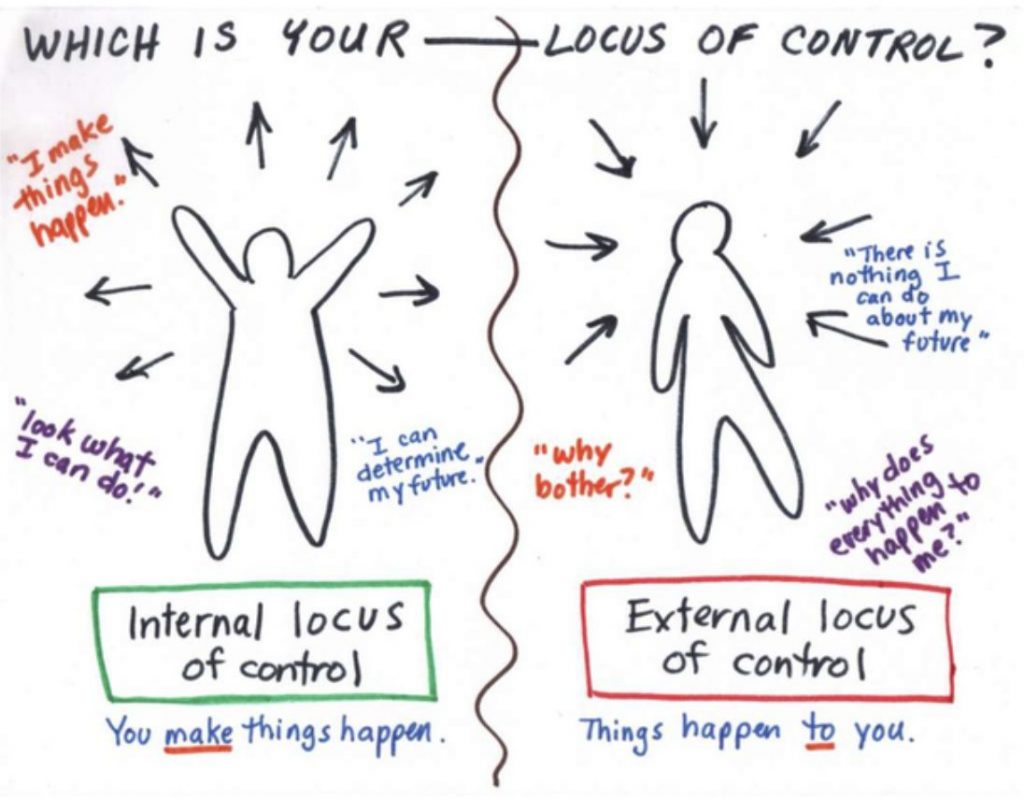Internal vs External Control
One thing we may all agree on is that our world can feel very uncertain at times. For our learners, their relationships with friends, family, and more broadly, social media, can be both a source of strength and produce a loss of control. Learners who connect well with family, find meaning in their daily interactions with friends and who navigate their social circles with both compassion and fortitude often find a sense of control in their day-to-day activities. They may find it easier to stand up for themselves, feel valued when sharing an opinion different from others and bounce back from difficult peer situations. Cognitively, learners with an internal locus of control view themselves as “masters of their own destiny” and have a belief of being able to “make things happen” in their own lives. Conversely, learners with an external locus of control can feel powerless and unable to change negative patterns in their lives. They may feel like “everyone hates me and there is nothing I can do about it”, or have defeatist attitudes and beliefs that limit them from trying to overcome challenges.
Here are a couple of quick ideas to help your child when they feel a loss of control in a situation:
- Reframe using “Always” and “Never” when describing a situation. (i.e., “Your friends haven’t always been upset with you; it seems like this conflict has only been for the last three days?”)
- Validate feelings and introduce solution-based thinking (i.e., “I can only imagine how you felt reading that text. What do you see as your options?”
Stay in the present! Your child may express feeling hopeless about the future, like things won’t change. Remind them that you are working through the conflict with them and together, “We will find a solution.”


